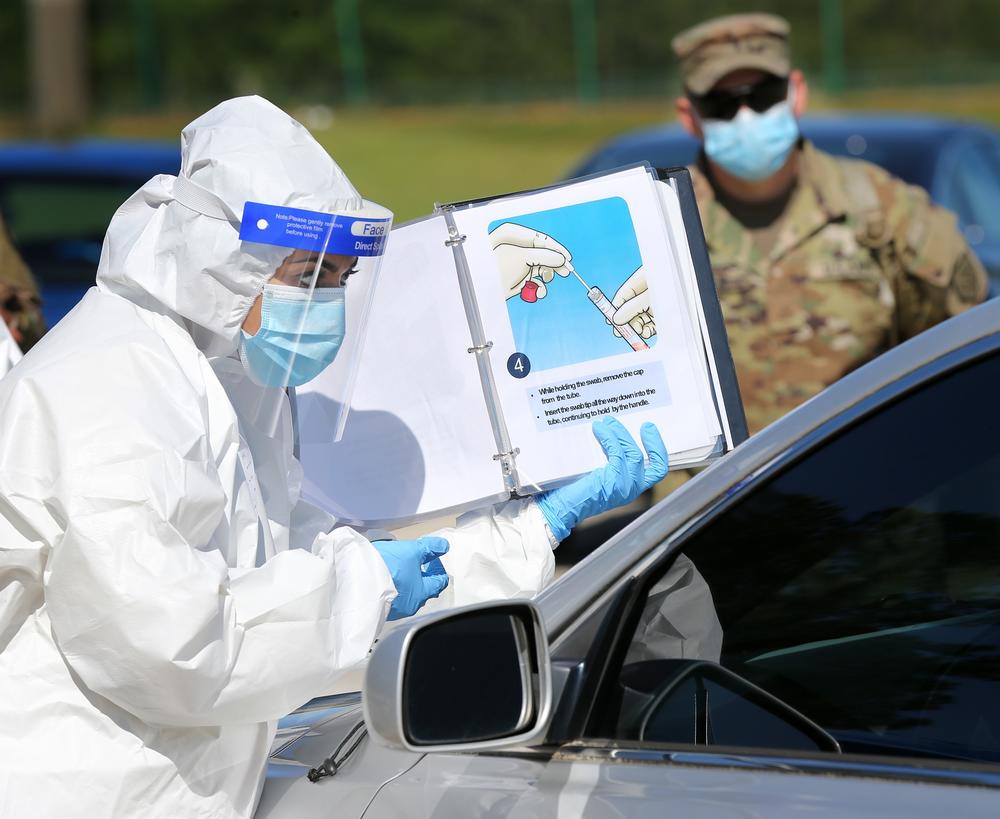Section Branding
Header Content
Experts: Georgia's Data On COVID-19 Seems Lacking
Primary Content
Georgians want to know how many people are getting infected with coronavirus, how many are on ventilators in intensive care units and how many are dying. But experts say the state health department is not presenting its data in a way people can easily understand.
The data from the state is difficult to follow for even the most experienced epidemiologists, let alone the public, said Ben Lopman, an infectious disease epidemiologist with Emory University’s Rollins School of Public Health.
Part of the public’s confusion, he said, stems from the way varying agencies present the data.
“It comes down to dates,” he said during a COVID-19 webinar hosted Thursday by the Georgia First Amendment Foundation.
A visual representation of data will change depending on whether a graph is set up to show the date someone started showing symptoms, the date they sought care, the date they got tested or the date the results were reported, Lopman said.
Emory put out a new heat map on 14-day averages, with statistics on social disparities and other details.
Over the weekend, Georgia saw its largest spike in coronavirus cases since the pandemic began, and there are currently more than 1,100 people hospitalized.
The Georgia Department of Public Health presents data based on the date of report, a spokeswoman said.
RELATED: As Georgia Sees Highest Coronavirus Numbers Ever, Experts Say Poultry, Ag Workers Most At Risk
The simplest way to report on the virus is by presenting how many cases are reported on a given day, Lopman said, but that’s not how the health department is doing it. Instead, he turns to the Atlanta Journal-Constitution and Johns Hopkins for what he views as more reliable real-time information on what is happening across the state.
Willoughby Mariano with the AJC said her team uses information published by DPH and the Georgia Emergency Management Agency.
“What we produce can look a bit different than what DPH puts on its website,” Mariano said.
In May, DPH made an error by including antibody test results alongside COVID-19 test results. More than 10% of the "completed tests" were antibody tests used to determine if someone once had the coronavirus, which is far different than the nasal swab tests that show whether a person is infected with COVID-19 in the moment.
Having a positive antibody test was not counted in the state's overall positive case count, so the combination of the two testing sources artificially inflated the test count and deflated the rate of positive cases per test completed.
MORE: Deconstructing Georgia's Dubious COVID-19 Data Dashboard
The antibody tests show whether someone had been exposed to coronavirus, which isn’t useful to track how many people currently have the disease.
“The issue of antibody testing emerged after a series of nationally ridiculed flubs on how Georgia presented its data,” Mariano said. “That raised a lot of trust issues, but no one has written a story saying this was intentional and the DPH meant to deceive the public.”
Mariano said people got the impression case numbers were going down dramatically when in fact they were holding steady, and what they want is an accurate depiction of how the disease is progressing in Georgia.
“We present the data in a way our readers can more easily consume it,” Mariano said.
Over the weekend, President Donald Trump said the numbers of positive coronavirus cases are going up because more people are being tested — a comment that has drawn the ire of public health experts.
"Testing doesn't cause cases; testing simply diagnoses cases," Dr. Carlos del Rio, an infectious disease expert with Emory University, said earlier this week.
Experts say looking at the percent positive helps better understand whether the increase in cases is a result of more testing. If the number of positives is more than 5% then there isn’t enough testing being done, Lopman said.
Gov. Brian Kemp said Wednesday the rate of postives in coronavirus testing stood at 8%, down from 13% on June 1. He said 100% of nursing home residents have been tested.
"This virus is deadly and remains a threat," Kemp said.
Please watch this video for an update on COVID-19 from Governor Kemp. pic.twitter.com/ONvSjUAtwH— Governor Brian P. Kemp (@GovKemp) June 24, 2020
Experts say one of the ways people can judge how coronavirus is progressing in Georgia is by monitoring those in the ICU.
Recently, there was an increase in the number of people hospitalized and a 13% jump in ventilator usage, according to WMAZ in central Georgia, which used data from GEMA.


